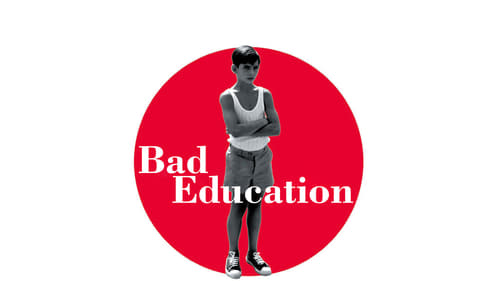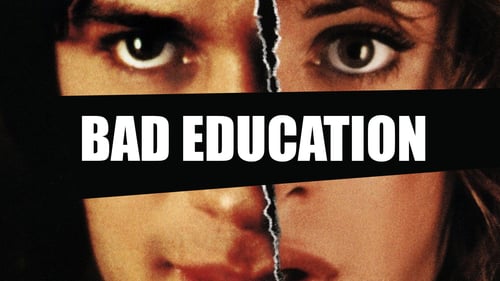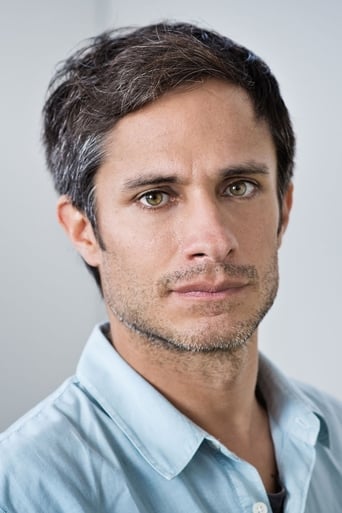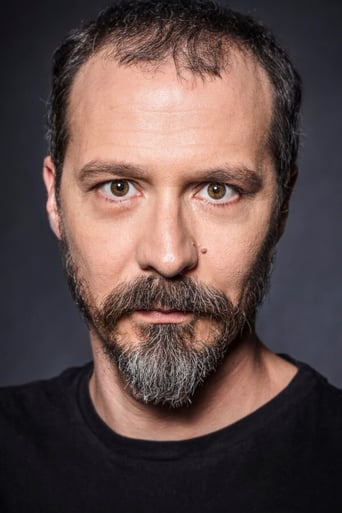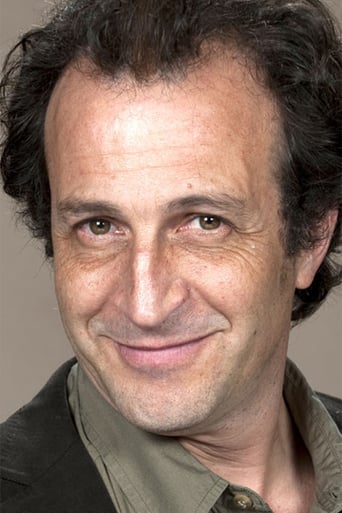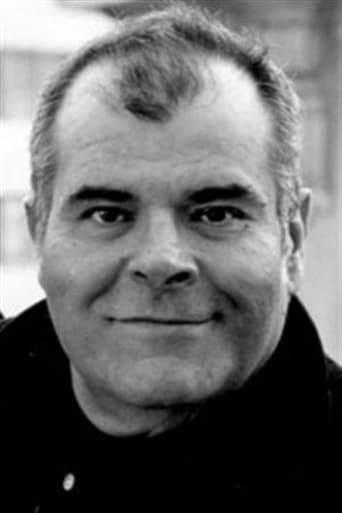SpuffyWeb
Sadly Over-hyped
Sexyloutak
Absolutely the worst movie.
Fatma Suarez
The movie's neither hopeful in contrived ways, nor hopeless in different contrived ways. Somehow it manages to be wonderful
Leofwine_draca
My first exposure to Pedro Almodovar and it's not been a great experience; in fact, while watching I was wondering what all the fuss was about. The story, which was also written by the director, is about a pair of young men who get involved with filming their life story, a life story which just so happens to include child abuse by a local priest in the 1960s.It doesn't sound like the most lively or even enjoyable of premises and, indeed, it isn't. I wondered what I was watching for most of the running time. The narrative is confusing, positing some events as fictional and others as real life, and the use of three different time frames means that it's hard work just to keep up with what's taking place on the screen. The film seems more to have been made to promote a gay agenda, but take out the supposedly controversial material and you're left with very little.There are some very explicit scenes in this film which are neither here nor there, although the acting is of a strong standard and you feel that the actors really inhabit their characters. It doesn't make you like them, though; indeed, they seem self-centred and rather hateful at times. A shame then that the story is so slight and small-scale; I'd much rather watch a film like SPOTLIGHT as an exploration of similar themes.
mailoflove
n 1980 Madrid, young film director Enrique Goded is looking for his next project when he receives the unexpected visit of an actor looking for work. The actor claims to be Enrique's boarding school friend and first love, Ignacio Rodriguez. Ignacio, who is using now the name Ángel Andrade, has brought with him a short story titled "The Visit" hoping that Enrique would be interested in making a film out of it giving him the starring role. Enrique is intrigued since "The Visit" described their time together at the Catholic school and it also includes a fictionalized account of their reunion many years later as adults."The Visit" is set in 1977. It tells the story of a drag artist and transsexual called Zahara, whose birth name is Ignacio. Zahara plans to rob a drunken admirer but discovers that the man is her boyhood lover Enrique. Next she visits her old school and confronts Father Manolo, who abused her when she was a boy. She demands one million pesetas from him in exchange for halting publication of her story "The Visit". The story is set in a Catholic boarding school for boys in 1964. At the school, Ignacio, a young boy with a beautiful singing voice, is the object of lust of Father Manolo, the school principal and literature teacher. Ignacio has found his first love and cinema in the company of Enrique, a classmate. One night, Manolo discovers them together and threatens to expel Enrique. In an attempt to prevent this, Ignacio gives himself to Manolo. The priest molests Ignacio, but expels Enrique nonetheless.Enrique wants to adapt Ignacio's story into a film, but Ángel's condition is that he plays the part of Zahara, the transsexual lead. Enrique remains skeptical, for he feels that the Ignacio whom he loved and the Ignacio of today are totally different people. He drives to Galicia to Ignacio's mother and learns that the real Ignacio has been dead for four years and that the man who came to his office is really Ignacio's younger brother, Juan.Enrique's interest is piqued, and he decides to do the film with Juan in the role of Ignacio to find out what drives Juan. Enrique and Ángel start a relationship, and Enrique revises the script so that it ends with Father Manolo, whom Ignacio was trying to blackmail to get money for sex reassignment surgery, having Ignacio murdered. When the scene is shot, Ángel breaks out in tears unexpectedly.The film set is visited by Manuel Berenguer, who is the real Father Manolo, who has resigned from Church duty. Berenguer confesses to Enrique that the new ending of the film is not far from the truth: the real Ignacio blackmailed Berenguer, who somehow managed to scratch together the money but also took an interest in Ignacio's younger brother, Juan. Juan and Manuel started a relationship and after a while realized they both wanted to see Ignacio dead. Juan scored some very pure heroin, so that his brother would die by overdose after shooting up. After the crime, the relationship disintegrates; Berenguer wants to continue the relationship with Juan, but Juan is uninterested. Berenguer claims that he will never let Juan go, and Juan threatens to kill him if Berenguer continues to pursue him. Berenguer attempts to blackmail Juan for his part in the murder of Ignacio.Enrique is shocked and not at all interested in Juan's weak vindications for what he did to his brother. Finally, before he leaves, Juan gives Enrique a piece of paper: a letter to Enrique that Ignacio was in the middle of typing when he died.In the epilogue, it is mentioned that Enrique releases his film later and achieves great success. Despite the grief and guilt of his brother, Juan also achieves success, but was later relegated to television work. Berenguer dies in a hit-and-run (caused by Juan, who was being blackmailed by Berenguer, and thus fulfilling his promise made earlier in the film).Rated NC-17 For Explicit Gay Content .I will never trust any priest again.
alex1975-714-592858
Bad Education is an interesting and dark crime film by Pedro Almodovar. This film has many layers and various dimensions of a story; stories of obsession, role-playing, and revenge. Almodovar's mis-en-scene was the excellent use of bright colors which helped the scenes pop from the screen. These colors were used as a vibrant explosion that helped in the dramatic effect of the stories this film presented. He also used excellent cinematography to lead his audience into this mysterious, bizarre world where graphic simulation of sexual acts was used. When viewing this film, the audience will notice that it is impossible not to get lost in the story played by the characters, because Almodovar augments the width of the image to where the audience will not notice the dimensions of fiction and reality.As a viewer of this film, I began to notice several themes. The first theme I noticed was the theme of indifferent attitudes toward women because there were no significant women's parts or roles played in this film, besides the role played in drag. Another theme is that of false identity - the movie's present tense is the 1980s, where a film director Enrique is searching desperately for a new project, hoping to find it by clipping through newspapers, when a young actor comes into his office with a story he's written. The young actor claims to be Ignacio, the boy Enrique fell in love with while they were in a Roman Catholic boarding school together. Although Enrique wanted to believe it to be true, he knew that something was not right. Enrique would eventually find out that Ignacio was not who he thought he was but played with the thought anyway; the theme of falling in love was also prominent in this film as it was shown - the Priest falls in love with Ignacio and the love between two young boys. In the end, as a reviewer, I enjoyed all the different art forms that this film presented. The art of mis-en-scene, the art of realism versus fictional and the art of love.
TBJCSKCNRRQTreviews
OK, so you'd have to make sure that they could all handle the subject matter, but once you're past that, it's perfect. This is only the second Almodovar movie that I watch(and I haven't seen the other version of this, either), the first being Volver, which I *loved*. I've heard that his work is usually divisive... I guess so, because this one simply did not grab me. It's not the overall story; in fact, I have to commend the man on an impeccable job done on the structure, the sheer fact that you can *follow* this thing, with several narratives, is a genuine accomplishment, and I personally enjoyed immensely how the director in this was trying to make motion pictures out of real events, right down to finding inspiration in newspapers, to see the artistic process, although I suppose that not everyone will necessarily feel the same way as I did about it. I have no problem with exploring pedophilia in the Church, rather, I consider it vital to do so. It's probably not that this is a crime mystery, and I hadn't figured out the solution before it was revealed. The plot is good, and it moves along nicely. I can only applaud the acting, even the kids are utterly and completely convincing. The characters are well-written, thoroughly developed, credible and three-dimensional. This is put together well, the cinematography and editing are smooth and clearly had effort and talent behind them. You know what? I don't think I can define why this didn't click with me. However, I'm not going to take it out on something as expertly made as this. It wasn't for me, that doesn't mean it won't be for you. If what I've described here sounds appealing, give it a chance. There is a lot of pretty graphic(apparently, originally downright explicit)sexuality and nudity, a little disturbing content and some infrequent strong language in this. Also, for anyone bothered by such, this is about transvestitism and homosexuality. The DVD comes with four and a half minutes of deleted scenes, a handful of galleries, a minute and 45 seconds behind the scenes montage, a theatrical trailer, a teaser and a TV spot. I recommend this to any fan of drama. 8/10


